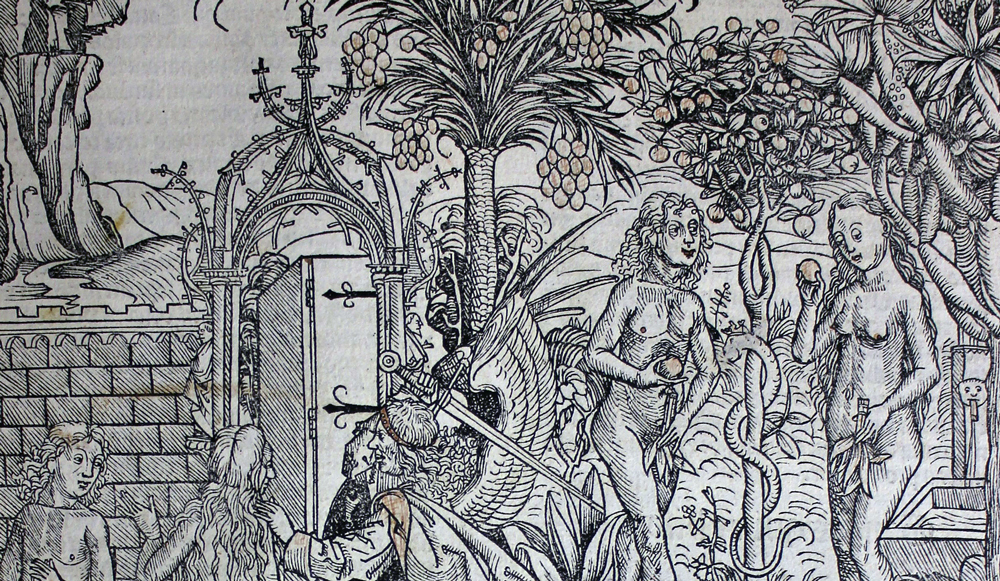Understanding Original Documents and Rare Books
 Leaf from the Nuremberg Chronicle, with an illustration showing Adam and Eve eating the apple from the Tree of Knowledge and their expulsion from Paradise as a punishment (Durham University Library SA 0166).
Leaf from the Nuremberg Chronicle, with an illustration showing Adam and Eve eating the apple from the Tree of Knowledge and their expulsion from Paradise as a punishment (Durham University Library SA 0166).
What are original documents and rare books?
Historians of any period or subject use original documents in their research. These come in many forms, but all were created during or soon after the time the researcher is interested in.
The phrase 'rare books' usually refers to printed books created between around 1450 and 1830. What makes these books special is that they were hand-made rather than produced by a machine and were usually published in smaller numbers than today. Although the content of some early printed books is now available online, researchers are also interested in the physical books themselves.
What skills do I need?
Studying a medieval manuscript written in Latin is not the same as analysing a twentieth-century photograph or researching early printed books. You may need to understand how the document or book was created, when, where, by whom, and for whom.
You may also need to know about:
- historic handwriting (palaeography)
- foreign languages, such as French or Latin
- specialist English terminology used in official documents
- searching online or card catalogues
Getting started
Have a look at the following resources:
- Our introduction to using archives and special collections in your research
- Using Archives: Guide for the inexperienced, created by the Archives Hub
- The online guides from the University of Nottingham on dating documents, understanding historic money, and weights and measures
- A Latin course for beginners from the National Archives
- Our introduction to early modern palaeography
- A palaeography course for beginners from the National Archives
- Studying early printed books, 1450-1800: A practical guide (Wiley, 2019) by Sarah Werner or her website: Early printed books - resources for learning and teaching
To find out about our archives and rare books, use our online catalogue Discover or get in touch with us if you have any questions. We are happy to help!


/prod01/prodbucket01/media/durham-university/library-/archives-and-special-collections/75794.jpg)